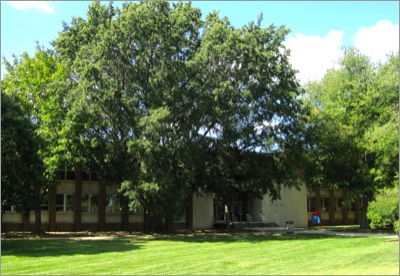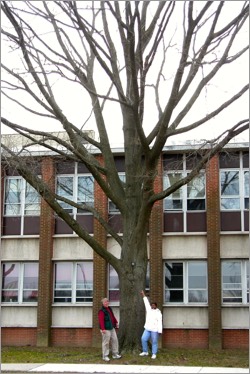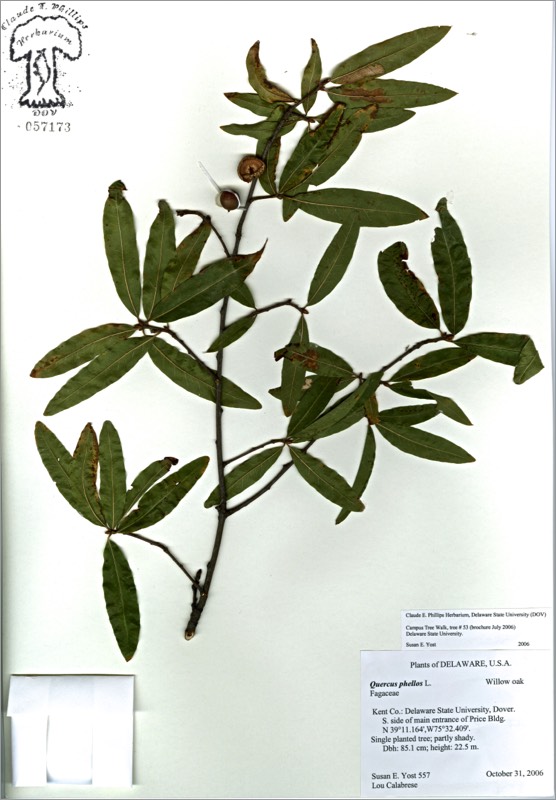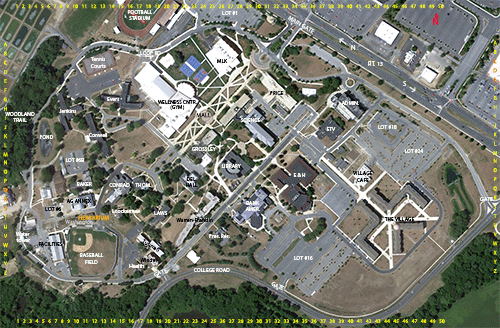Willow oak


Quercus phellos
WILLOW OAK
Fagaceae
E. North America
Location: map coordinates F-34 (east side of Price Building),
N 39°11'13'' W 75°32'24''
Planting history: presently unknown. Very large tree; >3 feet wide (diameter [DBH] 99.5 cm, 4/20/14).
Description:
Native species, State Rank S5 (very common) on coastal plain of Delaware
WILLOW OAK
Fagaceae
E. North America
Location: map coordinates F-34 (east side of Price Building),
N 39°11'13'' W 75°32'24''
Planting history: presently unknown. Very large tree; >3 feet wide (diameter [DBH] 99.5 cm, 4/20/14).
Description:
- large deciduous tree
- etymology: Quercus = the Latin name; phellos = from Greek name for cork oak (Q. suber)
- leaves simple, alternate; narrow and willow-like, not lobed as in most of our other oaks; shiny above, and dull paler green beneath
- monoecious (separate male and female flowers on same tree); flowers tiny; male flowers in drooping catkins, female flowers inconspicuous
- fruit is an acorn (develops from ovary of female flower)
- in the “red/black oak group”: leaf lobe with bristle-tip (single terminal bristle-tip in this species); acorn matures in 2 years, relatively bitter and inedible unless processed
- end buds clustered (typical of oaks)
- popular street and park tree; tolerates both sun and shade; fast-growing
- natural habitat moist soils, swamps
- native distribution mostly southern; north to southeastern Pennsylvania, and Long Island NY
Native species, State Rank S5 (very common) on coastal plain of Delaware


HIT REFRESH TO START LOCATION GRAPHIC